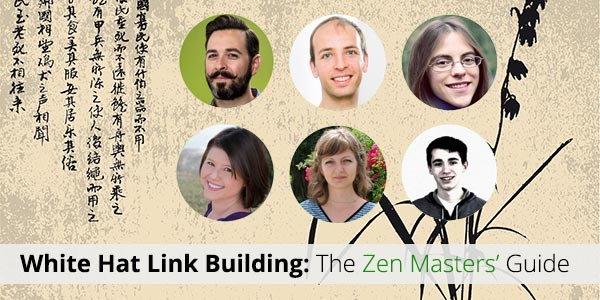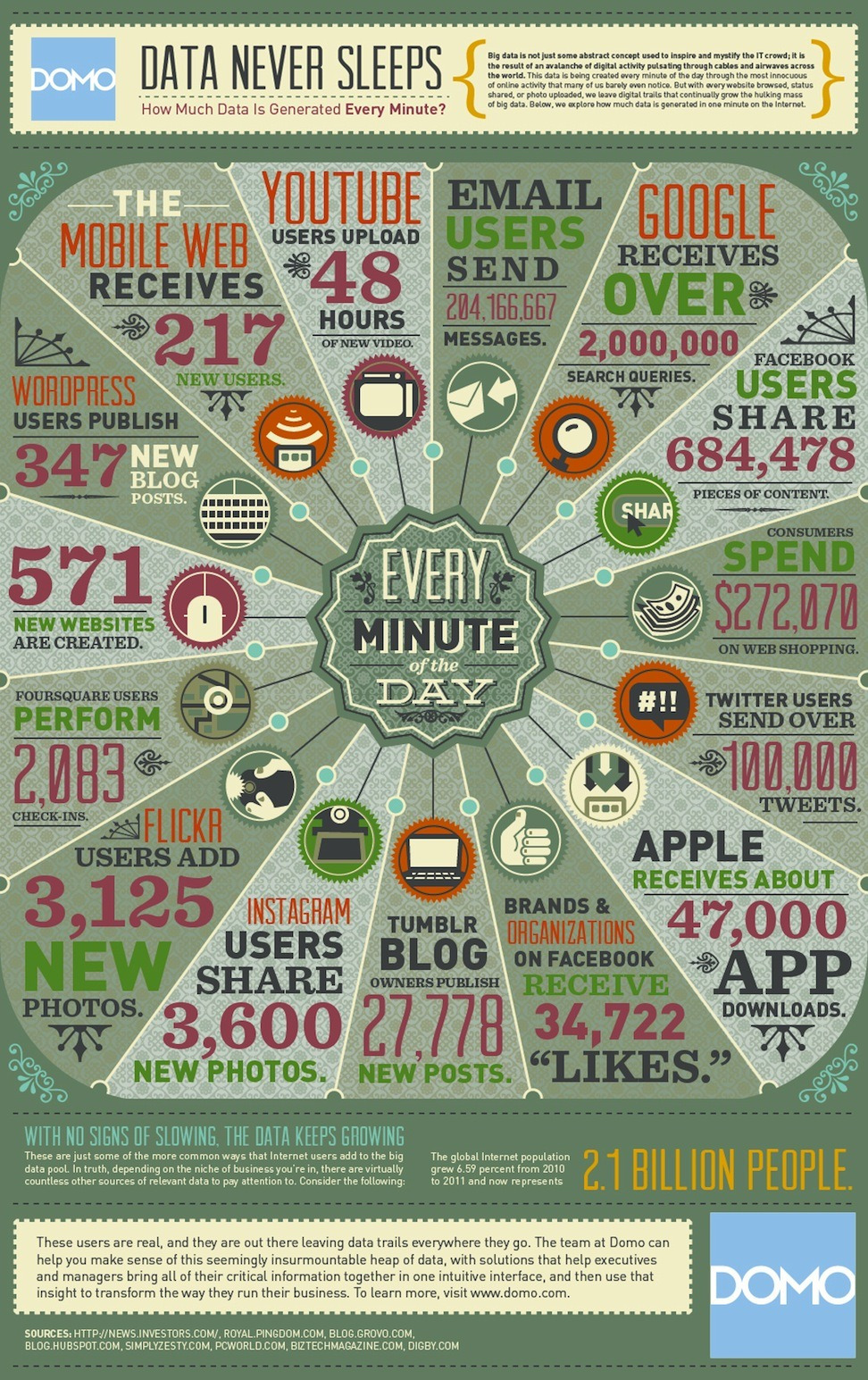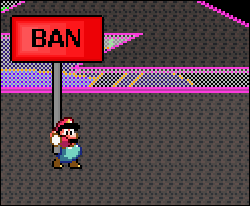White Hat Link Building
: The Zen Masters’ Guide

Link building has long been the cornerstone of SEO and with google recently confirming that they do not envisage devaluing links as a metric any time soon[1], building links to your website will remain a priority through 2014 and beyond.
If you want to be visible in the search engines you need links, but post Penguin[2], building the wrong kind of links will see your site penalised.
Confusing? A little, but fear not! Read on as we dig into how to build links in a white hat way that will see your site build authority, rise up the rankings and be safe from Penguin or any future google updates.
And to be sure you get the best advice available, we’ve enlisted the help of some experts…
What’s Inside?
- Part 1: Introduction
- Part 2: Interviews (featuring Rand Fishkin)
- Part 3: Infographics (featuring Brian Dean)
- Part 4: Content Marketing (featuring Ali Luke)
- Part 5: Broken Link Building (featuring David McSweeney)
- Part 6: Link Reclamation (featuring Kristi Hines)
- Part 7: Guest Blogging (featuring Ann Smarty)
- Part 8: Expert Roundups (featuring David Faltz)
- Part 9: Forums (featuring Charles Floate)
- Part 10: Blog Commenting (featuring Enstine Muki)
The Zen Masters









Part 1: Introduction
What Is White Hat Link Building?
Before we dive into examining the most effective white hat link building methods, let us first define exactly what it is that makes a link ‘white hat’. After all isn’t any proactive link building manipulative?
Google has the following to say about manipulative linking[3]: –
Any links intended to manipulate PageRank or a site’s ranking in Google search results may be considered part of a link scheme and a violation of Google’s Webmaster Guidelines. This includes any behavior that manipulates links to your site or outgoing links from your site.
While it is true that many (but not all) links acquired through a white hat link building campaign are intended to pass pagerank and authority (thereby potentially improving rankings), the key difference between the methods detailed below and those of a ‘black’ or ‘grey’ hat campaign is that any links acquired are ultimately given editorially.
That is not to say that we can’t be clever in how we attract those links (we will be), but for each method the following 3 statements remain true: –
- No ‘bribe’ or payment is exchanged
- No automation is involved
- The linkee (webmaster) can say no
Editorial choice is what makes a link white hat.
A white hat link builders job is to identify opportunities for editors to make that choice.
As we will see, there are plenty.
Part 2: Interviews

Interviews Are The Ultimate Authority Boosting Links
Becoming an authority in your niche is the ultimate goal for most internet marketers and one of the best ways to build that authority is by being quoted in other websites/publications. But how do you go about getting those opportunities to impart your words of wisdom and show off your knowledge?
For an established blogger, the biggest problem may well be one of too many interview/quote requests, but when you are new on the scene you will have to be a little more proactive.
A good place to start is by contacting smaller sites in your niche (ideally with whom you already have a relationship) and asking if they would like any quotes/insight for upcoming articles.
There may also be sites in your space that hold regular interviews with other bloggers, so reach out to them and ask if they would consider you for a future interview. If you don’t have a prior relationship then give them a bit of your background (but keep it brief) and point to some of your best work.
Additionally, services such as HARO (Help A Reporter Out) help to connect publishers with experts and are a good way of finding opportunities to get across your point of view/put your name out there. Journalists are always looking for additional insight and ways to make their job easier!
Don’t be overly self promotional in your pitch – this is about establishing authority, not selling.
One SEO expert who is certainly not short of interview requests is moz founder Rand Fishkin. Rand explained why interviews are one of the best ways to earn editorial links…

by Rand Fishkin / Moz
Zen Master Advice…
“Interviews are one of the best ways to earn editorial links from high quality sources.
The challenge is becoming a thought leader in a space and earning the privelege of being asked to contribute, which comes from a combination of quality, public contributions to your field and notoriety/recognition for those contributions (which is often the result of well executed personal or company branding).
When you’re asked to contribute to interviews, you get the opportunity to cite your work in responses, which leads to more links and traffic. Interviews also, perhaps oddly, beget more interviews, especially if the answers you provide are robust, useful, interesting, and shareable.
Publications need content, and interviewing notable figures is a great way to get that content and potentially earn traffic from those interested in what the figure has to say.
Help the publication with great content and more publications will come your way, leading to a virtuous cycle for all parties.”
Recommended Reading
![]()
- Link Building With Interviews (searchengineland)
- Better Than Link Building: Authority Building with HARO (SBSM)
- The 12-Step Insider’s Guide To Getting Press Coverage (forbes)
- 10 Ways to Build Authority as an Online Writer (copyblogger)
- 5 Steps to Becoming a Recognized Thought Leader (huff post)
Part 3: Infographics

Everything You Want In A Link Building Strategy
Creating (and distributing) a great infographic is a fantastic way to pick up high quality links from related sites in your niche. Our brains love visual content (a picture tells a thousand words etc) and a good infographic can take a complicated topic or data set and display it in an easily digestible format.
There are two sides to link building with infographics:-
Firstly, a visually rich and compelling infographic published on your own site is ripe for outreach and for picking up social media shares. As always, the more people who view your (amazing) content, the more editorial links you will pick up.
The real power though comes from distributing that infographic and allowing other sites in your niche to re-post it with attribution (i.e. a link).
The old school method for this distribution involved an ’embed this graphic on your own site’ box with code for other webmasters to copy, but there is a problem – these links leave an obvious footprint meaning they may be devalued by google in the future.
Fortunately Brian Dean of backlinko has a solution:-
Guestographics
Wouldn’t it be great if you could distribute your infographic to sites in your niche and write your own custom introduction, including the link of your choice? Well it is great. And you can!
You can read the full process here, but in a nutshell link building with guestographics involves: –
- Creating an awesome infographic
- Reaching out to sites that may be interested in that graphic
- Offering to write a custom introduction to the graphic
- Picking up links!
Here’s why guestographics are one of Brian’s favourite methods of building white hat links…

by Brian Dean / Backlinko
Zen Master Advice…
“Guestographics have everything you want in a link building strategy.
First, it’s based on awesome, visual content. That’s the first step to any successful
link building campaign. Without a high-quality infographic, your Guestographic won’t work for you.
But as you know, content isn’t enough (not even close).
That’s the second thing that Guestographics have going for them: added value.
There’s no way around it: getting other people to link to you is HARD work…even if you
have the best content in the world. As David found, pitching people with a free introduction
greases the wheels and gets more people to link to you.
Finally, it’s scalable. Not scalable in the “push a button and get 50 backlinks” sense. But just scalable
enough so that it works without setting off any alarms.”
Recommended Reading
![]()
- How to Get Backlinks With Guestographics (backlinko)
- Turning Images Into Links (quicksprout)
- How To Build Links With Infographics (moz)
- Top 10 Best Infographics of 2013 (piktochart)
Recommended Tools
![]()
- Piktochart – easily create professional looking infographics with built in chart creation, icons and more.
Part 4: Content Marketing

Content Marketing: The Clue Is In The Name…
Content marketing is at the core of most successful white hat SEO campaigns, but it is also one of the most misunderstood aspects of internet marketing. The clue is in the name…
Content marketing.
Most webmasters have heard the ‘content is king’ mantra and it is completely true that to succeed a website needs great content, but the most amazing content in the world is of zero use if no one actually sees it. Publishing great content and then hoping that it gets picked up is akin to opening a beautiful new retail store down a dinghy back alley with no passing trade.
Marketing content is as important as creating it and that marketing involves: –
- Fostering relationships in your niche
- Building your social media influence
- Sharing others content!
- Creating interesting content with a purpose
- Outreach/sharing for your best content
Not convinced? Take a look at this infographic from mashable[4] which shows the amount of data/content that is created on the web every minute. This was back in 2012!

Which is why you should spend at least as much time promoting your content as you do creating it!
Professional writer Ali Luke explains why content marketing is at the core of modern SEO…

by Ali Luke / Zen Optimise
Zen Master Advice…
“Content marketing has become a core part of SEO, especially with Google’s Penguin and Panda updates over the past few years. Truly great content, published on your site, will attract links naturally … though of course there’s plenty you can do to help the process along.
Despite what you might have heard, guest posting definitely isn’t dead either. By producing a great post or infographic to be published on someone else’s blog, you can capture the attention of another site’s audience and boost your reputation. While you’ll normally get a do-follow link from your guest piece, this isn’t the only or even the main SEO benefit. You’ll get new social media followers, new blog readers, and new attention (i.e. links!) from big names in your area of the blogging world.
There are plenty of blogs (like Firepole Marketing) that have done extremely well through content marketing alone, paying little attention to other aspects of SEO. While it’s obviously a good idea to be strategic about things, making excellent content a priority and thinking about readers, not links, gives your SEO an extremely solid foundation.”
Recommended Reading
- How To Develop A Content Strategy (top5seo)
- Content Marketing 101 (searchengineland)
- Copyblogger (the whole damn site!)
- 11 Most Powerful Content Marketing Examples By Small Businesses (getspokal)
- The Link Builder’s Guide to Email Outreach (quicksprout)
- How to Develop a Solid Blog Outreach Strategy (quicksprout)
- Content Marketing (Course) (zenoptimise)
Part 5: Broken Link Building

Who Says White Hat Link Building Doesn’t Scale?
There’s no getting away from it, cold outreach is difficult. Getting your email opened, never mind picking up a link is hard enough. To increase your chances of success you need an ‘in’ – a reason for the prospect to want to open the email.
With broken link building, not only do you have the perfect ‘in’, but the prospect will often feel they owe you a favour!
There is a treasure trove out there of old posts which point to expired content/websites and if you find a broken link on a site and offer an alternative for the webmaster to link to, then there is a very good chance you will get that link.
It’s a simple idea, but one that really does work and probably the most scaleable way to build domain level/authority boosting links in 2014.

by David McSweeney / Top 5 SEO
Zen Master Advice…
“Broken link building is a great way to kickstart a new SEO campaign and pick up some auhthority boosting links. With any link building through outreach, your chances of success are greatly increased if there’s something in it for the webmaster and helping them to ‘fix’ their site is a great in. It’s a way of breaking the ice, which is half the battle when you don’t have a prior relationship with the site you are requesting a link from.
Hopefully it goes without saying that you will have a much higher yes rate if the resource on your site you are asking them to swap the broken link for is awesome. Use archive.org to find the old page and make sure you replace it with an even better one!”
Recommended Reading
![]()
- The Ninja Guide To Broken Link Building (top5seo)
- The Broken Link Building Bible (moz)
- White Hat Link Building Without Any Content (backlinko)
- Black Belt Broken Link Building (quicksprout)
- How To Use The Broken Link Building Strategy To Get Links (search engine journal)
Recommended Tools
![]()
- Screaming Frog SEO Spider – crawl a website as google sees it
- Xenu Link Sleuth – simple tool for finding broken links on websites
Part 6: Link Reclamation

Claim Back The Links You Deserve!
Link reclamation is sometimes lumped in with broken link building and it is true that there is an aspect of repairing broken links (on your own site), but the technique goes way beyond just broken links.
Some of the ways you can use link reclamation to pick up fresh links to your site include: –
- Fixing broken internal links
- Finding broken links to your site from external sites
- Turning brand mentions into links
- Finding unattributed use of your content (i.e. using your infographics, republishing posts)
These are links that you deserve and in many ways the easiest links you will ever build! If you have a site which has been active for a while then running through a link reclamation process will almost guarantee you pick up fresh, white hat links to your site.
Don’t leave those links out on the table… go get them!
Professional freelance writer and blogger Kristi Hines explains why claiming back those links for your site is a must…

by Kristi Hines / kristihines.com
Zen Master Advice…
“A lot of people think of link reclamation as just 301’ing pages they have moved that still have a lot of great backlinks. But I like to think of reclamation as more than that. I like to think of it as not just reclaiming, but claiming links you deserve.
In addition to making sure pages that have a lot of backlinks do not lead to 404 errors, you should also look for other opportunities to get links to your website, such as looking for mentions of your business that were not linked to. Set up a Google Alert to ensure that future mentions are also linked. And if you create content like infographics, look for people using them who aren’t linking back.
The possibilities are endless.”
Recommended Reading
Part 7: Guest Blogging

It’s Not Dead…
Guest blogging has long been a great way to grow your audience in a niche, build your reputation as an expert and pick up links which drive engaged referral traffic and boost authority.
Unfortunately however (like many things in SEO) the practice was abused and scaled over the years and google began to take an increasingly dim view of guest blogging as a way to build links to your site. This culminated in their high profile deindexing of guest blogging community MyBlogGuest in May 2014[5].
But while guest blogging at scale may be over, high quality guest posting should still be an important part of your overall white hat link building strategy. Securing a guest post on a trusted site in your niche will still bring in that referral traffic and even if the link is nofollowed (which some nervous webmasters may insist upon) will lead to lots more eyeballs on your content/site…
…and more eyeballs = more opportunities to pick up ‘followed’ editorial links.
We asked queen of guest blogging Ann Smarty about the future of guest blogging…
Zen Master Advice…
I am asked a lot about guest blogging future and if it can still be considered a link building tactic. My opinion on that has never changed… neither has the way *I* guest blog ever changed as well… If you keep focusing on relationships and stop thinking about links, you’ll always do good. Back in 2008 when people started inviting me to guest post, I would never even include my byline when sending the article letting the blogger write their own blurb about me, choose where to link to and decide where to put that blurb…
MyBlogGuest made guest blogging a little bit too scaled for it to promote that perspective (we are working on changing that). So guest blogging future is in its past: Make it a less scalable, more relationship-building-focused tactic to bring your expertise and brand in front of the new audience and community. Yes, it should be ONE of your many tactics to build your brand and links: Too much of anything may be a bad (or low-effective) thing no matter how well you are trying to do that. This is also something I was talking about in my recent interview as well!
Recommended Reading
- How To Succeed With Guest Blogging In 2014 (top5seo)
- Make the Most of Guest Blogging: Second-Tier Link Building (kissmetrics)
- Advanced Guest Posting (quicksprout)
- 3 Reasons Guest Blogging Isn’t as Dead as Matt Cutts Says It Is (wordstream)
- The decay and fall of guest blogging for SEO (mattcutts.com)
Part 8: Expert Roundups/Group Interviews

Get A Leg Up From Other Authorities
As mentioned in part 2, being interviewed is a great way to build your authority in a niche and pick up strong backlinks.
When you are interviewed and quoted as part of an expert roundup you have the added bonus of getting your name seen alongside other authorities in your niche, which can be a great boost to your own profile.
Whenever you are quoted you will of course look to get a link back to your site!
Additionally, creating your own expert roundup posts can also be great linkbait as David Faltz from White Rabbit Marketing explains…

by David Faltz / White Rabbit Marketing
Zen Master Advice…
“Expert Roundups” can not only a powerful link building strategy, but are a great way to kickstart your blog by building relationships, traffic, social shares, and blog / brand awareness. Your readers will love getting insights from industry experts, and the influencers in your niche will appreciate the compliment you are bestowing on them. It is a win/win.
The key is to make sure your get enough experts. You can get a head start to this by looking for similar roundups in and around your niche, and seeing who contributed, and then reaching out to them. It is more likely someone who participated in other roundups, will contribute to your post. You will also want to use your favorite social monitoring tools or platforms to find various influencers, as well. Remember, the more the merrier.
The more experts you include, the more opportunities for shares, and links built right into the post. Your linkerati outreach will basically already be done 🙂 Obviously there are no guarantees, but generally if someone was included as an expert, there is a good chance, they will at the very least share the article.
Recommended Reading
Part 9: Forums

Build Highly Qualified Referral Traffic
Link building through forums has developed a bit of a bad reputation, due to the prevalence of spammers creating low quality posts, automating and setting up profiles just for the sake of a link. But when used correctly, forums are still a great way to gain a following in a niche and pick up links which refer strong, qualified traffic.
Most niches have at least one active forum, and wherever your audience are… you should be too!
Be a helpful, active member of a forum and other users will naturally click through from your signature or profile link to find out more about you. The ice is already broken and a trust developed, so referral traffic from forums generally converts very well.
Most forum links will be nofollow, but that’s not something you should worry about. In fact it can be beneficial as a natural link profile will have have a mixture of follow and nofollow links.
If a link brings traffic it is always a good link to have.
Charles Floate has a reputation for being a black hat SEO wizz, but he is actually an ‘all hats’ SEO and a great content marketer. We asked Charles to put his white hat on and share some tips on how he has used forums to build traffic…

by Charles Floate / God Of SEO
Zen Master Advice…
Forums are a great source of high quality traffic, and links. I’ve been a big fan of them for many years, and when Don Rhoades (aka The SEO Gonzo) did a post on Downtown Commerce, I really started to step-up my game as a Forum fanatic.
I personally have always been interested in making and managing forums, because user generate content is one of the most powerful ways to get organic visits. I don’t however, have the patience to deal with a lot of communities, probably why I’ve never been that successful in running my own forums – Though I’ve always managed to rank them pretty well, mainly down to the black magic I like to employ on my own projects, though.
When my blog was hit with a penalty in May, 2014 I had to employ a whole new range of tactics that I wasn’t really all that comfortable with prior to getting traffic from Google. The one thing that was really growing on me though, was a forum called Black Hat Underground. I’d already seen sprinkles of traffic flowing through to my blog from the forum, but really wanted to up my game, and as I’d been working on a forum based project with a big garden based client for the past few months I already knew what I had to do to get the most traffic possible.
Step 1) Research the Forum
Each forum and community has there very own style, likes, dislikes and etiquette, but we’ll get onto general etiquette in the next step.
Most forums will allow you to filter/search different forum categories, for example in the “Advice Hub” section of BHU, I can filter which posts have the most views, replies, likes and the last or most recent post –

This means I can easily see which has been the most popular pieces of content on the forum – BHU for example has RadiantDarkness’s Ranking Blueprint as the most popular piece, with a Tools thread and then CCarter’s weekly introduction thread… This tells me that people on this particular category are really interested in threads that inform them on “How to do things” and “What to use” in this Black Hat SEO Community.
It also gives me a list of some of the most popular users, which I can then take away and look into both their individual writing styles and user profiles, which seem to be so popular on this forum.
For this forum, if I wanted to get a popular thread then I’d combine these 3 posts and the 2 users writing styles into a Series of forum posts on how to Rank a Website with Black Hat SEO – I’d also include gifs and print screens to add humour, as the members of the forum seem to respond well to humour in posts.
Step 2) Forum Etiquette
There’s a few general rules you can follow on the forum to make sure you don’t get the ban hammer hit you square in the face –

Or generally make a bad name for yourself on the forum, which is probably worse than getting banned.
Usernames –
Different forums will have rules on your usernames, I either user –
- GodOfSEO
- GodOfSEOCo
Some forums however, don’t allow you to use “Brand” names or URL based Usernames, so look into the rules before signing up with a brand name – You can, and I have been in the past instantly banned for this.
Don’t Be Overly Self-Promotional –
This is something people love to do when they jump into doing forum posts. Don’t go promoting your articles/posts/website straight away. I use a Signature link like this –

Which people can choose to click, or not. This means they get to read the good pieces of content I put out/reply to other people’s post then, if they like my “style” can follow through to my blog.
Help People / Don’t Be a Dick –
Answering questions in a detailed and well informed way will help boost your reputation across the forum.
Even if it’s the stupidest question in your industry you’ve ever seen, the worst thing you can be seen to be doing is insulting another member of the community and it doesn’t help your brand at all.
Step 3) Posting –
Now you’ve got all your research and etiquette out the way, it’s time to actually post.
Like I said above, you don’t want to jump into posting your own links all over the place. Go by the rule, if it’s helpful, post it.
Start out by getting your post count up with helpful insights to people’s questions/threads. A lot of forums won’t let you post links/images before you’ve been a member for a certain amount of time or prior to a certain amount of posts. This also helps you gain some reputation (aka Notoriety) and friends within the community.
Once you have a good amount of time, and have researched what’s previously been popular. Dive into creating a big informative thread – A guide, a summary etc… Make sure it’s something the community will be interested in and benefit from, these guides are also good to put into your signature, below the link back to wherever you’re trying to fire traffic through to.
SEO or Traffic? –
This entire strategy is based around building good quality links that users/members of the community you’re targeting will enjoy and benefit from clicking.

I follow Gonzo’s rules of building links for traffic now, the SEO benefit will follow regardless.
Recommended Reading
- How to Use Forum Link Building to Build Authority for Your Site (vertical measures)
- Forum Participation Rubric for Ecommerce Link Building (downtown ecommerce)
- Ecommerce Forum Link Building with Don Rhoades (Part 2) (point blank seo)
- How to use Reddit to Generate Leads
- One Year On – The God of SEO Case StudyM
Part 10: Blog Commenting

Give And Ye Shall Receive
Another link building method which has developed a bad name through spam/automation, but one that should not be overlooked as a way to build your influence in a niche and pick up referral traffic.
Here are some tips for getting the most out of blog commenting:-
- Always use your real name
- Sign up for a gravatar (your photo will be displayed beside your comment)
- Try to add to the conversation where possible (don’t just say ‘nice post’)
- Tweet the author and let them know you enjoyed their article and have left them a comment
Becoming a regular commenter on high profile blogs in your niche is also a great way to build a relationship with A-list bloggers and can improve the success rate of any future outreach.
Who doesn’t like getting comments on their blog? A-list bloggers are no different!*
*with the exception of copyblogger! [6]
Blogger Enstine Muki has had great success in building up referral traffic to his blog through blog commenting. Here is what Enstine has to say about blog commenting…

by Enstine Muki / EnstineMuki.com
Zen Master Advice…
“Blog commenting is an evergreen method for backlinks, relationship building and direct traffic. The beauty about it is it generates almost instant results.
However, comments have to be relevant, valuable and conversational. Without this, your comments may just end up being deleted leaving you with nothing in return.”
Recommended Reading
- How to Explode Your Traffic and Branding with Blog Commenting (search engine journal)
- Want to Increase Traffic? Get Instant Results With Blog Commenting (bloggingtips.com)
- Is Commenting on Blogs a Smart Traffic Strategy? (copyblogger)
- 5 Examples of ‘Spam Link Building Tactics’ Done Right (search engine watch)
References
- Matt Cutts: Google Won’t Devalue Links Anytime Soon Search Engine Watch (May 6th 2014)
- Google Penguin Wikipedia
- Link Schemes Google Webmaster Guidelines
- How Much Data Is Created Every Minute? [INFOGRAPHIC] Mashable
- Google Penalizes MyBlogGuest, a Guest Blog Network Search Engine Watch (March 19th 2014)
- Why We’re Removing Comments on Copyblogger (copyblogger)